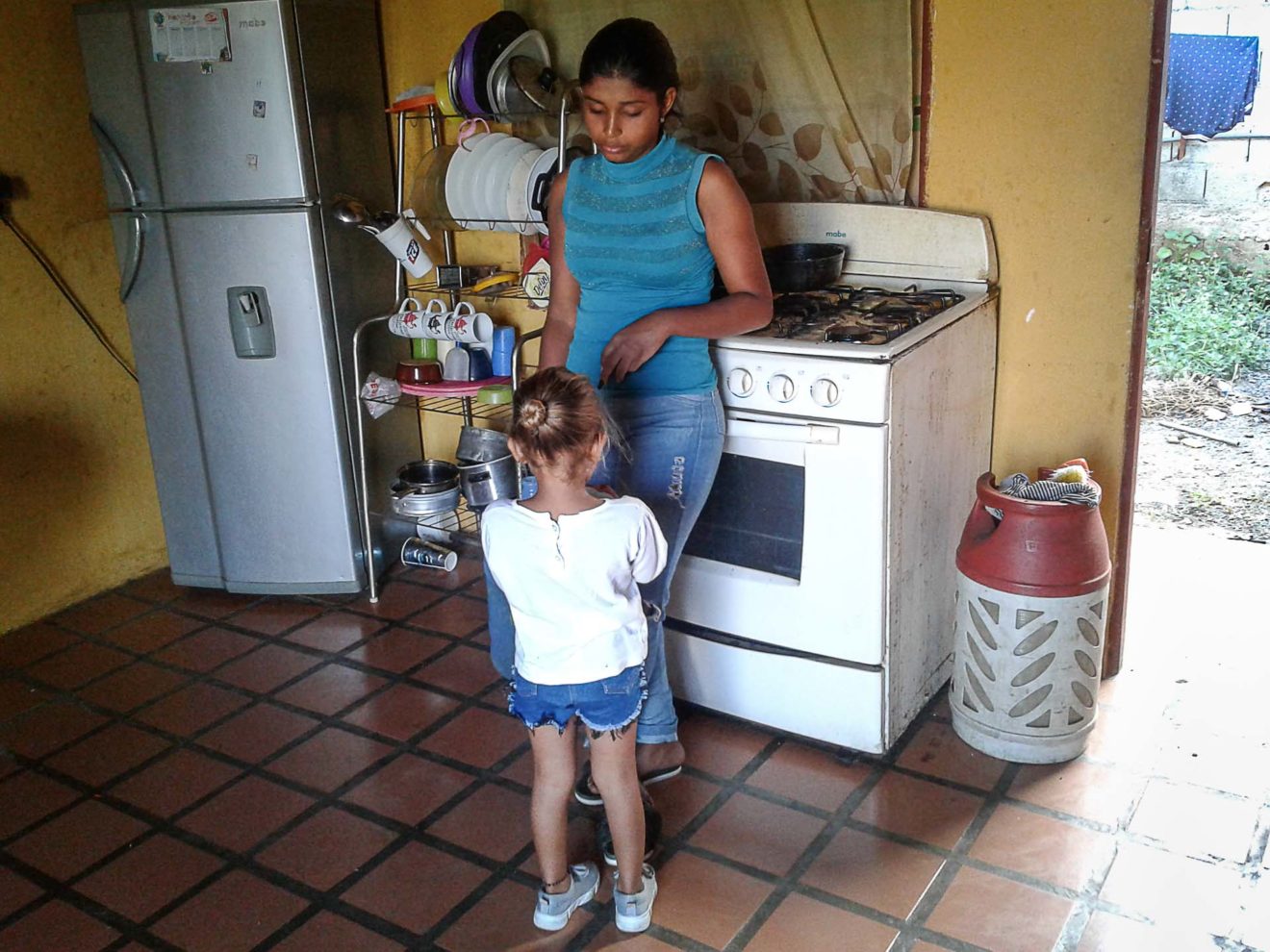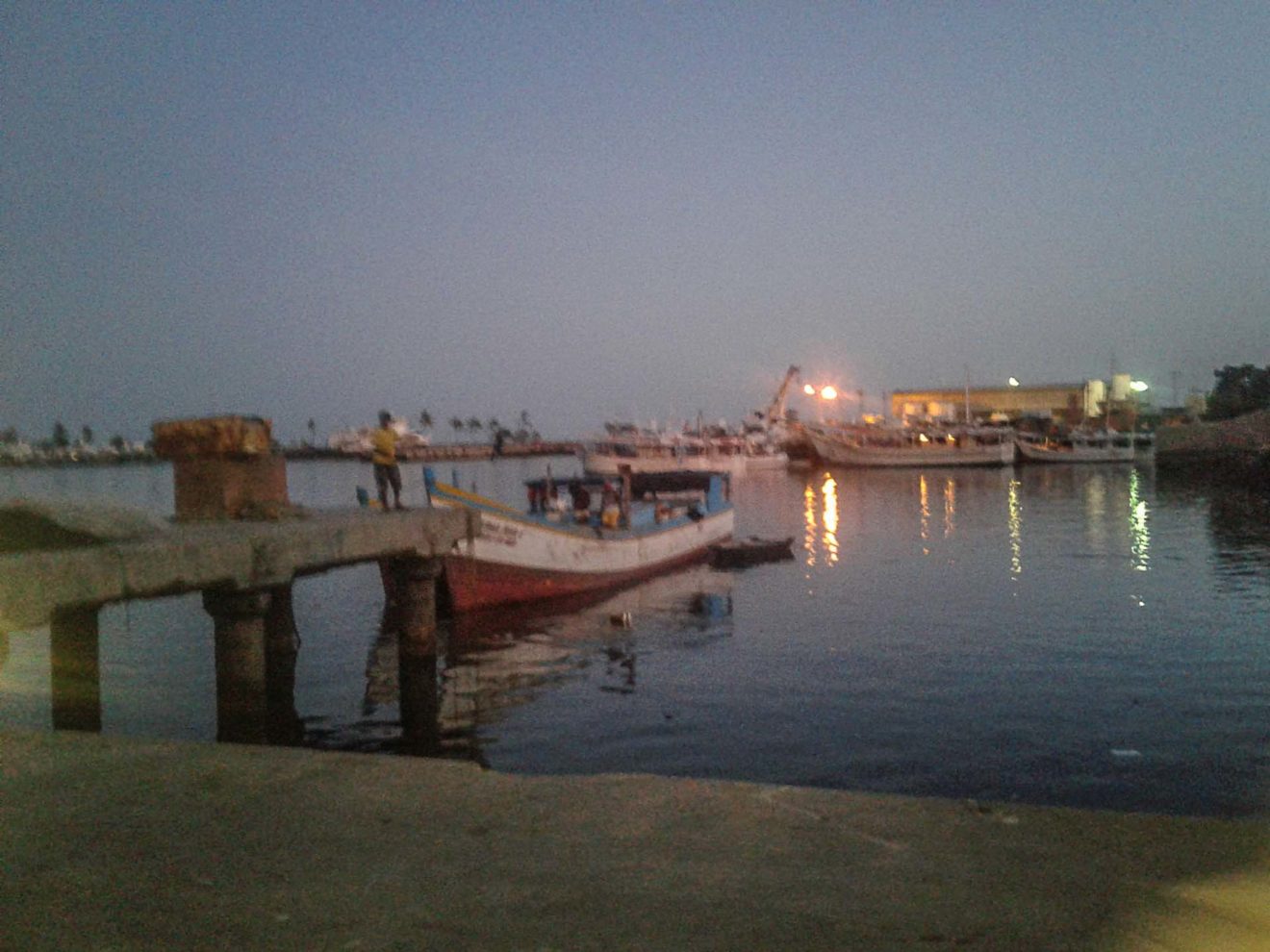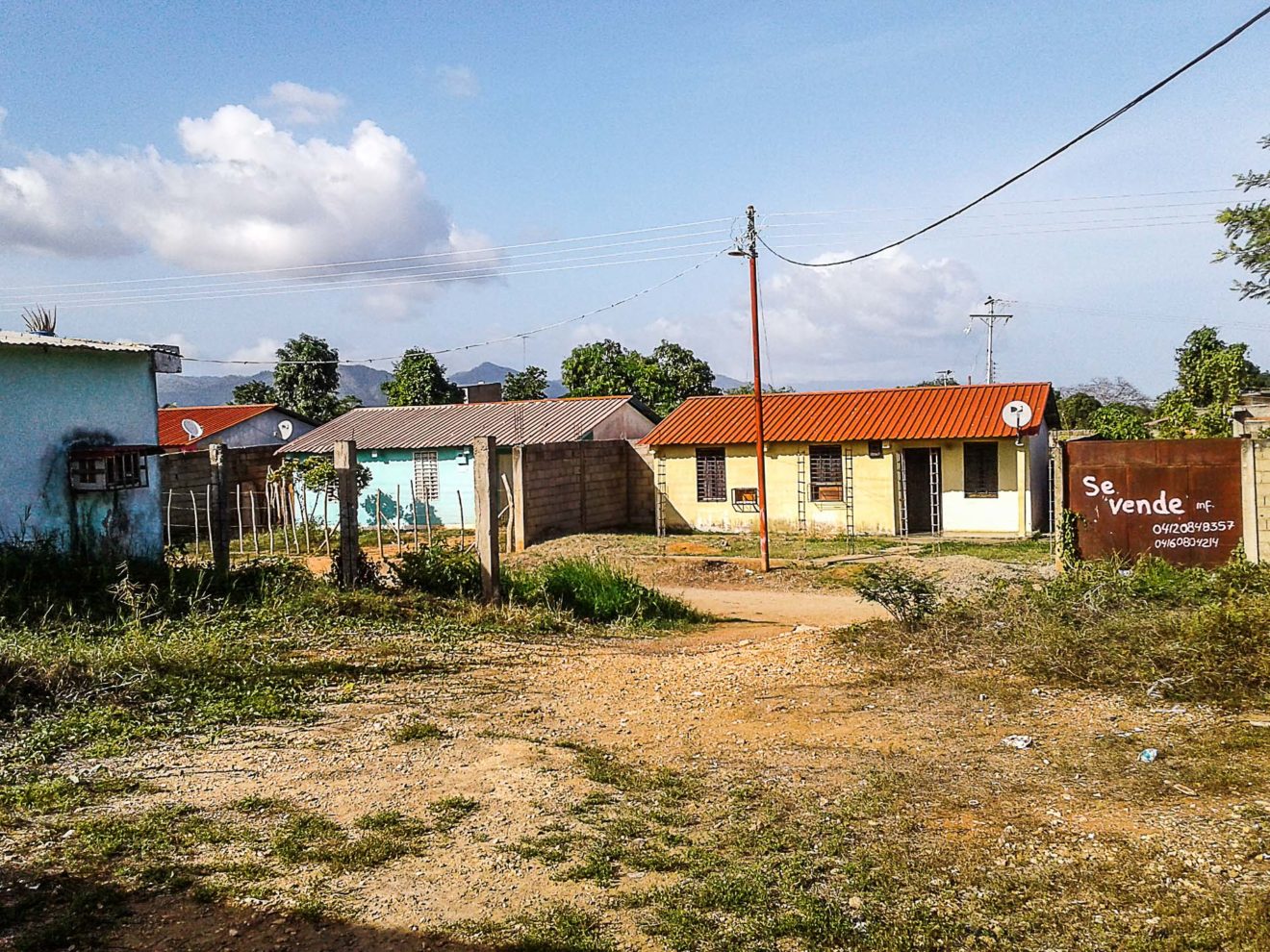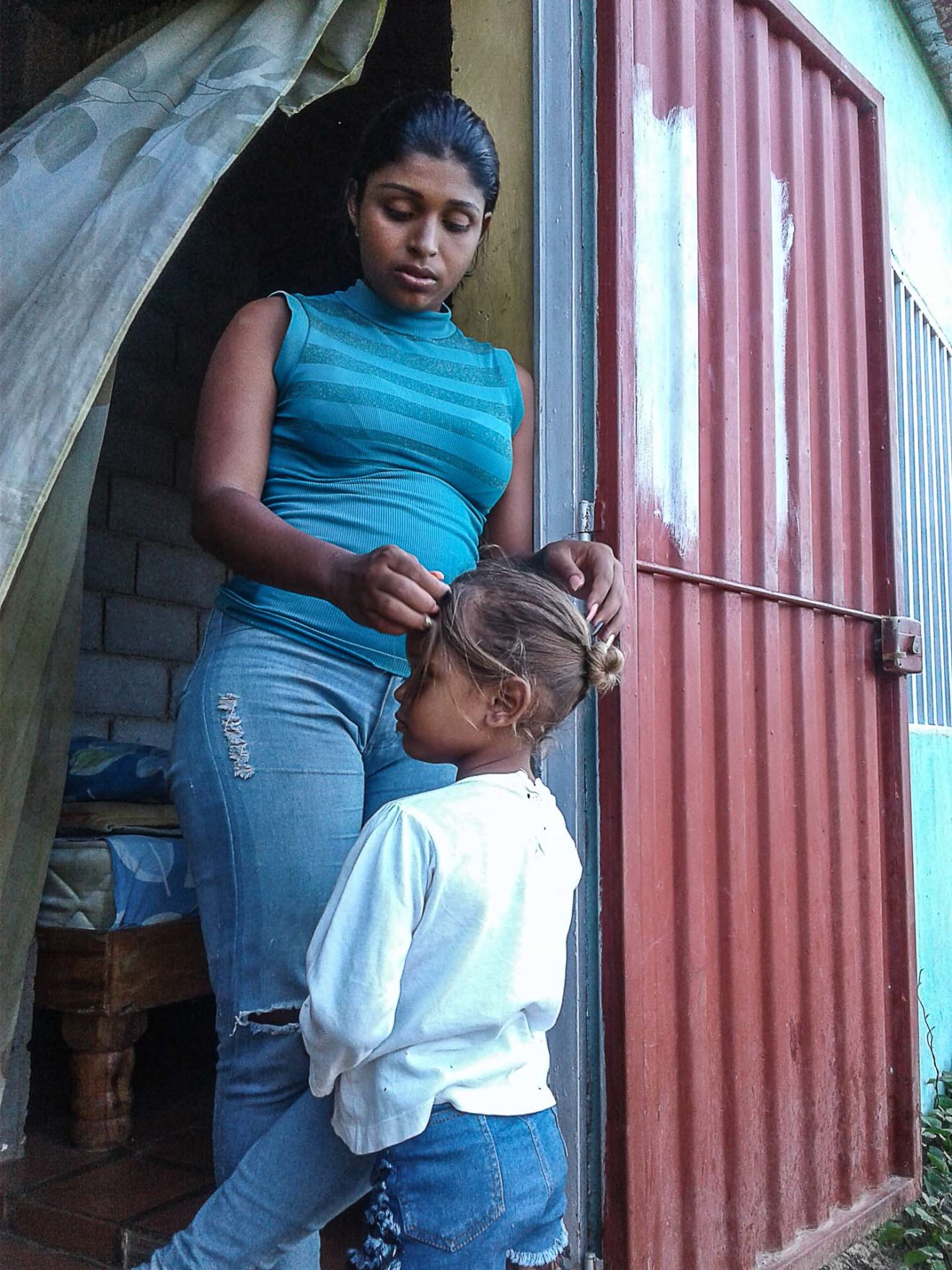Chronicles of Us: The Survivor
Yubreilis was one of the few who came back to her Sucre village, after the boat she sailed on to a new life in Trinidad wrecked at Boca del Dragón strait. This is her story.


Photo: Nayrobis Rodríguez
“God will give us a second chance.”
Angélica was trying to soothe Yubreilis, who couldn’t stop crying. Sitting on a boulder by the sea, they waited for a miracle, for someone who could see and rescue them.
It was the afternoon of April 25th, 2019. But this drama had started several days before.
Yubreilis, 22, worked at the only thing she knew how to do: hairdressing, manicures and makeup. She’d learned from her mother, a hairdresser living in Trinidad for a year now, where she established a business.
But the money Yubreilis was making in Güiria wasn’t enough for diapers and the milk formula her 7-month-old baby needed. She couldn’t afford clothes or medicine for her 3-year-old girl, nor could she send her 5-year-old to kindergarten because she needed a uniform, shoes and food. Everything was too expensive and food, even fish in this coastal town, is sold in dollars.
“I can’t let them starve to death,” she thought, seeing how it was getting harder to feed her girls thrice a day. The answer seemed simple: her mom was in Trinidad. Upon arrival, she’d ask a friend for advice on how to get political asylum and, after she got it, she’d find a regular job and send money to her daughters. In a few months, she’d return to Güiria and set up a birthday party for the youngest.

Yubreilis realized it was getting harder to feed her girls three times a day. But she found a solution: her mom was in Trinidad. Sucre, 2019. Photo: Nayrobis Rodríguez.
So she decided to leave the girls under the care of their dad and his family, and travel to Trinidad like many of her neighbors were doing.
On average, about 100 people sail weekly from Sucre’s Atlantic coast, in fishing boats with no lifesavers, the fleet of the sea coyotes. Each passenger pays $200 for the trip. The boatmen must pay some $500 to guards and customs officers, for the green light to leave.
That was the plan.
The big wave
On Tuesday, April 23rd, Yubreilis shared with her friend Yocelys her idea of going to Trinidad. Coincidentally, Yocelys was planning to take a boat that very night. “If you want a seat, be at the middle harbor at 6:00 p.m. Ask for Julio, the captain.”
Yubreilis didn’t think twice. She filled a suitcase with a few clothes, left her daughters at her paternal grandmother’s house and went to the harbor, unnoticed by two national guards who could’ve stopped her, as they usually did with passengers to demand dollars in exchange for entry. That was good luck, because the girl had no money, not even for the trip; her plan was to persuade the captain to pay him the fare once they were in Chaguaramas, Trinidad, where her mother would be waiting for her. And it worked: Julio accepted the deal, even though he didn’t know her.
Upon climbing aboard the “Jhonaili José,” the passengers saw something was wrong: the board was filling with water. Even so, after leaving the port of Güiria, Julio stopped in other beaches for more passengers. In the end, there were nine men and 29 women, some of them teenagers. The boat was also full of bags with lemon and copper, and heaps of luggage.
Yubreilis was squeezed among the others, with another woman sitting on her legs. The waves became stronger near the strait of Boca del Dragón, between Venezuela and Trinidad, and it was then that one of the engines failed. Julio stopped the boat to ask for a phone, call a contact in Trinidad and let them know that they were close. The boat, full of water, started sinking. Everyone screamed.

On average, about 100 people sail weekly from Sucre’s Atlantic coast, in fishing boats with no lifesavers. Each passenger pays $200 for the trip. Sucre, 2019. Photo: Nayrobis Rodríguez.
A furious wave turned the boat over and everyone fell into the sea. Those who couldn’t swim, tried to stay afloat by clinging to those who could. Others, like Yubreilis, were holding on to plastic canisters filled with gas, but with the fuel burning her, she reached for the boat while it was still floating. Many had the same idea and Yubreilis thought she’d drown, so she left the group, swimming in the opposite direction, towards where she thought she’d find land. Angélica, a travel partner she’d met that day, went along.
“What if I let go?” Yubreilis thought, crying. “What if I give up?”
She wanted to see her daughters, especially the one turning eight months that very day.
After swimming and floating adrift for 37 hours, they reached the Pato island. They found a cave and waited.
On the afternoon of April 25th, they saw boats far away, too far. They called, but the wind swallowed their weak voices. Eventually, a vessel sailed a bit closer. They shouted with all the strength they had left, but the sailors didn’t hear them until they called a second time. The boat approached.
Mario, the father of Yubreilis’ daughters, was on board. She cried when she saw him, and all the way to town. Yubreilis was haggard, with baggy eyes after so many sleepless hours.

Güiria inhabitants demanded a survivors’ search from the authorities, but the National Guard and the Coast Guard didn’t budge, claiming that they had neither fuel nor boats. Sucre, 2019. Photo: Nayrobis Rodríguez.
Blame the survivor
Since Jhonaili José was reported missing, on the morning of Wednesday, April 24th, Güiria inhabitants demanded a survivors’ search from the authorities, but the National Guard and the Coast Guard didn’t budge, claiming that they had neither fuel nor boats.
The people organized a mission of their own. One after another, the fishermen offered their boats, some relatives bought gasoline and others, especially the store owners, donated food for the rescuers. It was only then that the authorities felt forced to hand over fuel for the boats. Although the relatives asked for at least a helicopter to sweep the search area, the request was ignored until three days later, on Saturday 27th, when there were very few chances of finding someone alive.
Angélica and Yubreilis were found after six others, and the joy of finding two more survivors filled the town with hope. But they were the last ones. The other 30 vanished, swallowed by the sea.
Angélica and Yubreilis were immediately put in an ambulance, ready for any survivor. They were taken to the only healthcare center in town, the one with the crowd waiting outside, asking for those alive.

“I’m not afraid even if they try to intimidate me. They judge me for being alive,” Sucre, 2019. Photo: Nayrobis Rodríguez.
Yubreilis was dehydrated and under a heat stroke. She had burns on her belly, face and back. While receiving medical attention, she made a decision: she’d never try to travel to Trinidad or any other place ever again. “I don’t want to leave here anymore. God really gave me a second chance and I must seize it, everything that’s going to happen to me is going to happen here, this is the place I should’ve never left.”
But now, the same people celebrating her rescue started whispering whenever she went by. “That’s the survivor. She’s walking through the streets so calm, while the others are missing. Look at what she’s wearing and already with her friends, as if nothing happened.”
She hears this all the time. She’s a pariah, an intruder in her streets. “I’m not afraid even if they try to intimidate me. They judge me for being alive,” she told Angélica when they met. Angélica is going through the same thing. “I’m about to slap the next person who asks me what I’m doing so fresh in the street while the others are gone.”
Yubreilis has a reason to overcome the scorn: the need to give her daughters the life they deserve. Since the wreck, she’s looking for something to do. She still dyes hair and does manicures, she sells food in the market, offering beauty products door to door.
The sea wind follows her on the unpaved streets.
She tries to not look back at the waves.
This story was developed during a La Vida de Nos Itinerante workshop, a nonfiction narrative training program for journalists and activists that La Vida de Nos has been making in 16 states of Venezuela. Translated by Javier Liendo.
Caracas Chronicles is 100% reader-supported.
We’ve been able to hang on for 22 years in one of the craziest media landscapes in the world. We’ve seen different media outlets in Venezuela (and abroad) closing shop, something we’re looking to avoid at all costs. Your collaboration goes a long way in helping us weather the storm.
Donate




